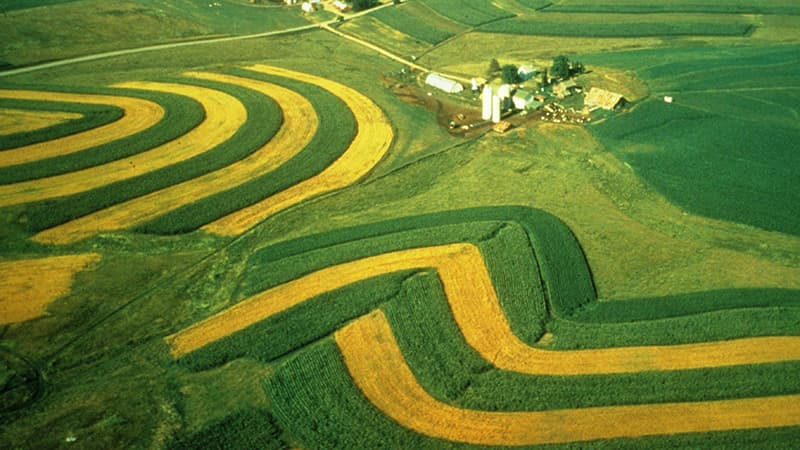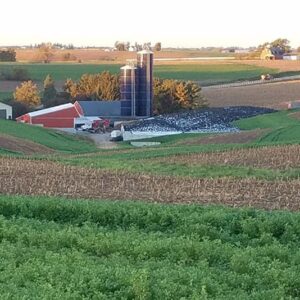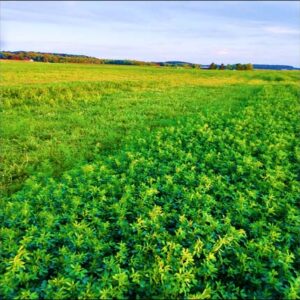Extreme rain events, wetter springs and falls, groundwater flooding, declining snow cover, winter “thaws,” changing seasons, more frequent extremely hot days, and droughts are among the climate impacts stressing Wisconsin farms in the most recent report from the Wisconsin Initiative on Climate Change Impacts (WICCI).
Extreme rain events are washing away valuable topsoil, disrupting farm operations, damaging infrastructure, and challenging the conservation practices that have kept soil in place and helped protect water quality. Wetter springs and falls are reducing the ability to get into the fields for spring planting and fall harvesting. During sustained wet periods, groundwater flooding forms new lakes and flooded areas that cause farmland loss. Wetter weather also increases the risk for plant disease on major crops in the state.

While warming in the spring and fall can increase the growing season for some crops, warming during winter can also reduce the formation of ice and snow that cranberries and many other crops need to survive the winter. In addition, warmer winters may allow pests to overwinter more successfully or migrate to Wisconsin from southern states. More summer heat can stress livestock, especially dairy cows, that thrive in cooler conditions and cool nights. Hotter summers and prolonged droughts also increase the need for irrigation.
An increasing reliance on row crop agriculture has increased greenhouse gas emissions. Tillage practices needed for row-crop farms have also reduced soil health and the ability of agricultural soils to store carbon and hold water. All these changes are causing uncertainty for Wisconsin’s agricultural producers.
Yet, there is hope. Today there is a move in agriculture toward keeping fields green year-round, including a shift towards increasing living cover on farm fields and promoting rotational grazing. The WICCI Agricultural Working Group recommends these and other solutions to help Wisconsin agriculture become more climate resilient and reduce greenhouse gas emissions. There is hope for the future, but it’s up to us.
This article is part of a series highlighting the contribution from each WICCI Working Group for the 2021 WICCI Assessment Report.
Agriculture Working Group - Stories
Support WICCI
Gifts to the Wisconsin Initiative on Climate Change Impacts (WICCI) Program Fund provide general, discretionary program support and are used to enhance and expand WICCI’s teaching, research, and public service roles. Gifts are also used to support partnership-building activities, include faculty, staff, and student recruitment, retention, and morale.
The Wisconsin Initiative on Climate Change Impacts (WICCI) is a statewide collaboration of scientists and stakeholders formed as a partnership between UW–Madison’s Nelson Institute for Environmental Studies and the Wisconsin Department of Natural Resources. WICCI’s goals are to evaluate climate change impacts on Wisconsin and foster solutions.

